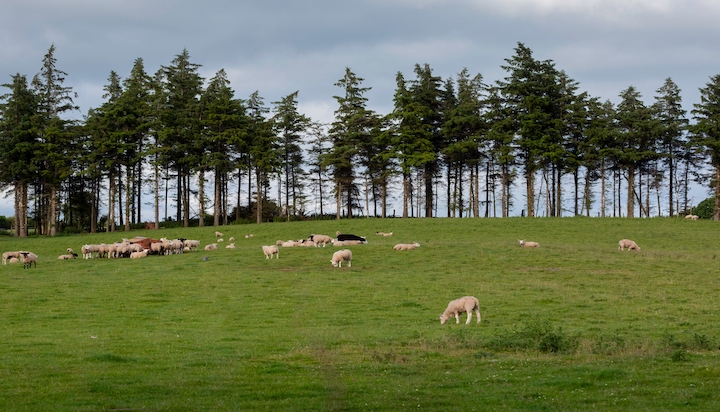The new Antimicrobial Resistance Multi-Stakeholder Partnership Platform is an inclusive, voluntary, and international forum that aims to bring together voices from all areas, sectors, geographies, and perspectives within a holistic and system-wide One Health approach to promote a shared vision and drive AMR-response actions.
Stakeholders such as civil society, research and academia, the private sector, regional, intraregional, and international organizations, as well as governments and philanthropic organisations organised in clusters, have a once-in-a-lifetime opportunity to address complex AMR-related issues in a concerted and collaborative manner by proposing, leading, and joining the Platform's Action Groups that reflect their interests and priorities.
“We can get ahead of AMR with the right partnerships and collaborative models. The time to act is now,” said WOAH Director General Monique Eloit.
“We are striving to protect everyone from the threat of AMR.” By joining the Partnership Platform, stakeholders will be able to contribute to the formation of consensus among a broad range of public- and private-sector stakeholders in order to advocate for and generate concrete AMR actions, as well as to be part of and implement a shared global vision for tackling AMR at all levels (local, country, regional, and global).
The stakeholders will also suggest and lead initiatives to improve the One Health response to AMR at all levels in priority and common interest areas, as well as promote collective awareness of the need to boost involvement and investment in fighting AMR through a One Health strategy.
They will also discuss and learn about the challenges and potential for addressing AMR, as well as network with One Health sectors and stakeholders.
“Antimicrobial resistance threatens animal health, food safety and food security, economic prosperity and ecosystems worldwide,” said FAO Director-General QU Dongyu.
Mr. Dongyu says the world needs to join forces now to prevent drug-resistant diseases and reduce their implications.
According to UNEP Executive Director Inger Andersen, “AMR challenges cannot be understood or addressed separately from the triple planetary crisis – the crisis of climate change, the crisis of nature and biodiversity loss, and the crisis of pollution and waste, all of which are driven by unsustainable consumption and production patterns."
He says the climate crisis and AMR are two of the greatest and most complex threats the world currently faces. Both have been worsened by and can be improved with human action.
“This platform will be vital in raising the profile and urgency of addressing AMR while building and maintaining political momentum and public support,” said WHO Director-General Dr Tedros Adhanom Ghebreyesus. “It will help to drive global coordination so that our collective response is more strategic, resource-efficient and sustainable.”
Antimicrobials have a significant impact on the prevention and treatment of infectious diseases in people, animals, and plants, but their misuse and abuse are the primary causes of antimicrobial resistance (AMR).
AMR is a multifaceted global threat dubbed a "silent pandemic." It is ranked among the top 10 global public health hazards to humanity in the 21st century. Every year, an estimated 1.3 million individuals die directly as a result of bacteria that are resistant to antimicrobial treatments.
According to Quadripartite, if no action is taken, this number could skyrocket, resulting in higher public health, economic, and social costs, and pushing more people into poverty, particularly in low-income countries, adding that greater coordination, political leadership, interdisciplinary and multisectoral targeted actions by the entire society are required to safeguard the planet's health
Latest Stories
-
Let’s prioritize research quality in higher education institutions for industrial growth-Prof. Nathaniel Boso
4 hours -
Herman Suede is set to release ‘How Dare You’ on April 24
8 hours -
Heal KATH: Kuapa Kokoo, Association of Garages donate 120k to support project
8 hours -
KNUST signs MOU with Valco Trust Fund, Bekwai Municipal Hospital to build student hostel
8 hours -
The influence Ronaldo has on people, Cadman Yamoah will have same on the next generation – Coach Goodwin
9 hours -
Gender Advocate Emelia Naa Ayeley Aryee Wins prestigious Merck Foundation Awards
10 hours -
South Africa bursary scandal suspects granted bail
10 hours -
Ecobank successfully repays $500m Eurobond due April 18
10 hours -
Re: Doe Adjaho, Torgbui Samlafo IV, call for Unity among Paramountcies in Anlo
10 hours -
Extortion and kidnap – a deadly journey across Mexico into the US
10 hours -
Rihanna says fashion has helped her personal ‘rediscovery’ after having children
10 hours -
Development Bank Ghana targets GH¢1bn funding for commercial banks in 2024
11 hours -
Shatta Movement apologises to Ghana Society of the Physically Disabled after backlash
11 hours -
Sammy Gyamfi writes: Tema-Mpakadan Railway Project; A railway line to nowhere
12 hours -
Bright Simons: Is the World Bank saving or harming Ghana?
12 hours

